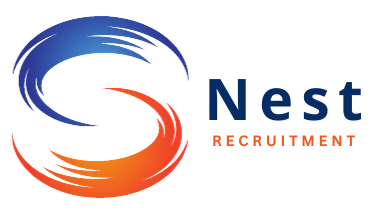Understanding Different Healthcare Settings: Choosing the Right Fit for Your Career Goals
With an ever-growing demand for professional expertise, healthcare careers are on the ascendant, offering diverse job opportunities set to burgeon in the coming years. The sector casts a wide net, encompassing reverential fields such as Nursing, Pathology, and Mental Health Support, among others, tailored to cater to various facets of societal wellbeing. Personal influences—from socio-economic background to individual values—play a critical role in navigating this terrain, as choices in healthcare career goals become a reflection of one's aspirations and inherent attributes.
Embarking on a healthcare journey, one must deliberate over an array of healthcare settings, each presenting unique roles, responsibilities, and professional fulfilments. Whether drawn to Aged Care, Ambulance Services, or Dental Health, your healthcare career goals dictate the setting that aligns best with your ambitions. Recognising the prerequisites—such as the essential criminal history check or the tailored training modules—could be pivotal in propelling healthcare career goals for nurses and other professionals towards a desired trajectory. Navigating this multiplex of opportunities requires keen understanding and guidance; thus, this article aspires to be the compass for aspiring healthcare professionals, mapping out the sectors intricately, charting skills against settings, and nurturing the continuous evolution requisite in healthcare careers.
The Diverse Landscape of Healthcare Settings
Healthcare professionals have a plethora of environments in which to pursue their healthcare career goals. The choices are vast and varied, each with its own set of services, patient care approaches, and atmospheres. Understanding these settings is crucial for career goals for nurses and other healthcare practitioners to find their niche. Here are some of the primary healthcare settings:
- Hospitals: These are often the most recognised healthcare settings, ranging from general hospitals that cater to a variety of health needs to specialised institutions focusing on particular medical fields, such as cardiology or oncology. Additionally, district hospitals serve as first-level referral centers in many healthcare systems, providing both inpatient and outpatient services (World Health Organisation).
- Clinics and Medical Offices: These settings are ideal for routine healthcare, such as checkups and managing non-emergency conditions. They can range from private practices, where a single physician offers personalised care, to group practices that provide the expertise of multiple healthcare professionals under one roof.
- Long-Term Care Facilities: For patients requiring extended medical attention that does not necessitate hospitalisation, long-term care facilities, including nursing homes, offer a solution. They provide a spectrum of care for serious, often chronic health issues (WGU).
- Home Health Care: This setting allows patients to receive professional medical care in the comfort of their own homes, which is particularly beneficial for those recovering from procedures or managing long-term illnesses.
- Rehabilitation Centers: These centers are dedicated to the recovery and therapy of patients with injuries or disabilities, providing specialised services such as physical, occupational, and speech therapy.
- Outpatient Surgery Centers: Known for their cost-effectiveness and convenience, these centers offer a variety of surgical procedures without the need for an overnight hospital stay.
- Birthing Centers: For expectant mothers seeking a more natural and personalised birthing experience, birthing centers provide care during pregnancy, childbirth, and the postpartum period, focusing on healthy pregnancies with minimal risk factors.
- Hospice Care Facilities: With an emphasis on palliative care, hospice facilities support patients at the end of their lives, ensuring comfort and dignity, as well as offering emotional and spiritual support to families.
- Telehealth Services: Telehealth has revolutionised access to healthcare, enabling patients in remote or underserved areas to consult with healthcare providers via digital communication tools, thus expanding the reach of medical expertise beyond traditional settings (Better Health Channel).
Each of these settings requires specific skills and qualifications, and they offer different experiences and rewards. As healthcare continues to evolve, so too do the opportunities within these diverse environments, allowing healthcare professionals to align their career goals with the setting that best suits their aspirations and skills.
Matching Career Goals with Healthcare Settings
Healthcare professionals aiming to carve a successful path in the industry must strategically align their healthcare career goals with the settings that best fit their aspirations and skill sets. A well-defined career goal acts as a beacon, guiding professionals through the vast healthcare landscape, ensuring their growth aligns with personal and professional benchmarks. Here's how to match career aspirations with the right healthcare environment:
- Assessment and Goal Setting: Begin by taking stock of your current skills and experiences. Identify areas for improvement and set SMART goals—specific, measurable, achievable, relevant, and time-bound—to chart a clear course for your career development. For instance, a nurse looking to advance into management might focus on leadership training and seek out mentorship opportunities. Utilise resources like
HealthStream to access tailored educational content that can help bridge any skill gaps and prepare for the next career milestone.
- Leverage Transferable Skills: Recognise the value of transferable skills, such as communication, problem-solving, and adaptability, which can be applied across various healthcare settings. These skills are particularly advantageous when transitioning between roles or aiming for promotions, as they enhance your versatility and job satisfaction within the healthcare sector. When interviewing for positions, clearly communicating how your transferable skills and long-term career goals align with the prospective role can make a significant difference.
- Continuous Learning and Networking: Healthcare is an ever-evolving field, and staying abreast of the latest advancements is crucial. Engage in continuous learning through platforms offering a range of solutions like video learning, reporting & analytics, and quality & safety education. HealthStream, for example, provides comprehensive tools for
performance learning management that cater to the development of healthcare staff into leaders. Moreover, networking within your chosen field can open doors to new opportunities and insights that align with your career goals for nurses or other healthcare roles.
By meticulously evaluating personal strengths and career objectives, healthcare professionals can choose a setting that not only meets their current competencies but also supports their future growth. Whether the goal is to become a specialist in a high-tech hospital wing or to provide compassionate care in a long-term facility, the deliberate alignment of career goals with healthcare settings is a fundamental step towards a fulfilling career trajectory.
Skills and Qualifications for Different Settings
Healthcare professionals embarking on their journey towards achieving their healthcare career goals must recognise that each setting demands a unique blend of soft skills and technical qualifications. These competencies are not just desirable but essential for delivering high-quality care and advancing within the healthcare field.
- Soft Skills: The bedrock of effective healthcare delivery, soft skills are the personal attributes that enable professionals to interact empathetically and efficiently with patients, colleagues, and the wider healthcare community. These include:
- Empathy: Being able to understand and share the feelings of others is crucial in healthcare settings.
- Communication: Clear and compassionate dialogue with patients and team members is key.
- Teamwork: Collaborating with a diverse group of professionals to provide patient care.
- Work Ethic: A strong sense of responsibility and commitment to one's duties.
- Stress Management: The ability to stay calm and effective in high-pressure situations.
- Positive Attitude: Maintaining a hopeful and optimistic outlook, even in challenging circumstances.
- Flexibility: Adapting to the dynamic nature of healthcare environments.
- Time Management: Efficiently managing one's time to balance patient care, documentation, and other responsibilities.
- Confidence: Trusting in one's skills and making decisions with assurance.
- Receptiveness to Criticism: The willingness to learn from feedback and improve professional practice.
These interpersonal skills are not only beneficial for those setting their career goals for nurses but are universally applicable across various healthcare settings. They complement the technical qualifications, creating a well-rounded professional poised for success.
To thrive in the healthcare industry and meet their healthcare career goals, professionals must continuously develop both their soft skills and technical knowledge. This dual focus ensures that they are well-equipped to handle the complexities of patient care and the ever-evolving nature of the healthcare sector. By prioritising these skills, healthcare workers can ensure they are providing the best possible care while also advancing their careers.
The Role of Continuous Learning and Adaptation
As we have explored, the journey toward meeting healthcare career goals is intertwined with the choice of the correct healthcare setting that resonates with one's skills, aspirations, and values. This alignment is essential for long-term satisfaction and growth within the highly dynamic and rewarding healthcare sector. Each environment offers its challenges and rewards, demanding a careful assessment of personal attributes and a commitment to continuous professional development to thrive in the chosen path.
The considerations presented here serve as a guide for aspiring healthcare professionals to navigate the wide array of choices and to invest their talents where they will be most effective and fulfilled. Whether one's calling is within the fast-paced atmosphere of a hospital or the intimate care of home health services, the deliberate alignment of individual strengths and career goals with appropriate settings will pave the way for both personal and professional triumphs.
Conclusion
In the pursuit of healthcare career goals, it is critical to approach goal setting and action planning with a clear understanding of what drives personal and professional growth. The research underscores the importance of setting goals that are not only challenging but also intrinsically motivating, ensuring they are aligned with one's values and are approach-oriented. These goals should be complemented with mastery goals, fostering an environment where continuous learning is not just encouraged but becomes a part of the healthcare professional's ethos (NCBI).
The patient-centered approach to healthcare is not just a philosophy but a practical framework within which healthcare professionals operate. It demands respect for individual preferences and diversity, clear communication, and a safe environment for both patients and staff. This approach extends to healthcare settings, where a person-centered culture is pivotal. Establishing systems that document goals of care and providing access to training for effective communication are foundational steps towards achieving high-quality healthcare (Australian Commission on Safety and Quality in Health Care).
As healthcare professionals navigate their career paths, here are key points to consider in aligning their healthcare career goals with their work environment:
- Goal-Oriented Action Plans: Specify the 'where', 'when', and 'how' of goal implementation. Anticipate potential barriers and have coping strategies in place to overcome them.
- Fostering a Person-Centered Culture: Healthcare settings should actively work towards creating an environment that supports the elicitation and documentation of patients' and staff members' goals of care.
- Investment in Continuous Learning: Access to training and education is essential for healthcare professionals to stay current with medical advancements and to refine their communication skills, ultimately supporting their career goals for nurses and other healthcare roles (SAMHSA).
By integrating these elements into their professional lives, healthcare workers can ensure that they are not only meeting the immediate needs of their roles but are also setting themselves up for long-term success and satisfaction in their chosen careers.











